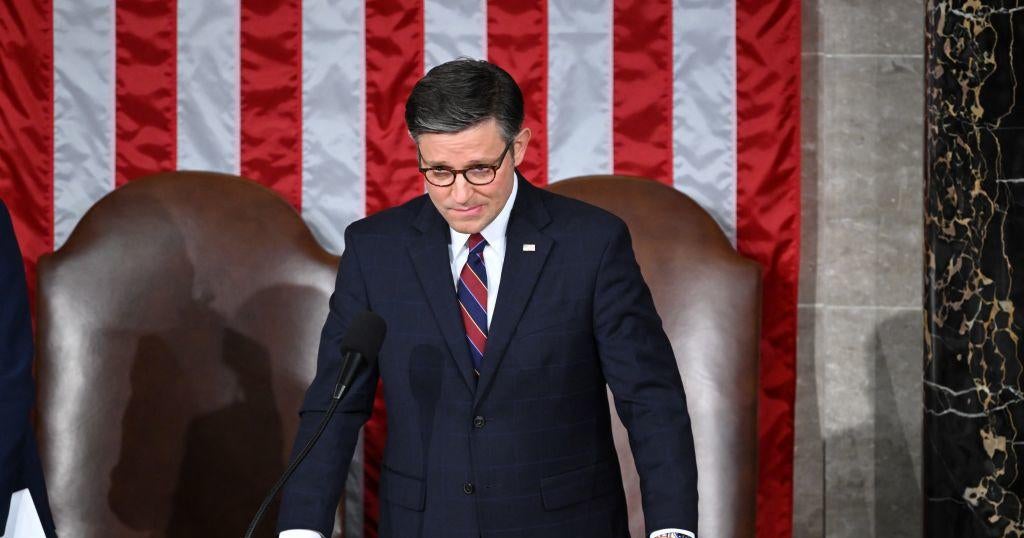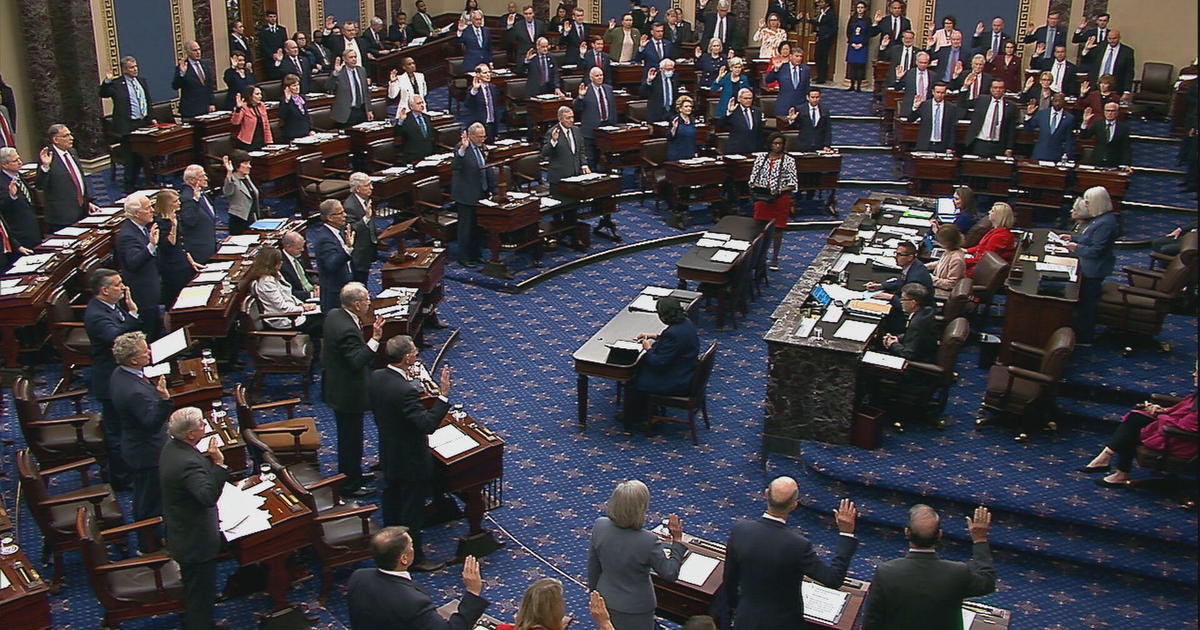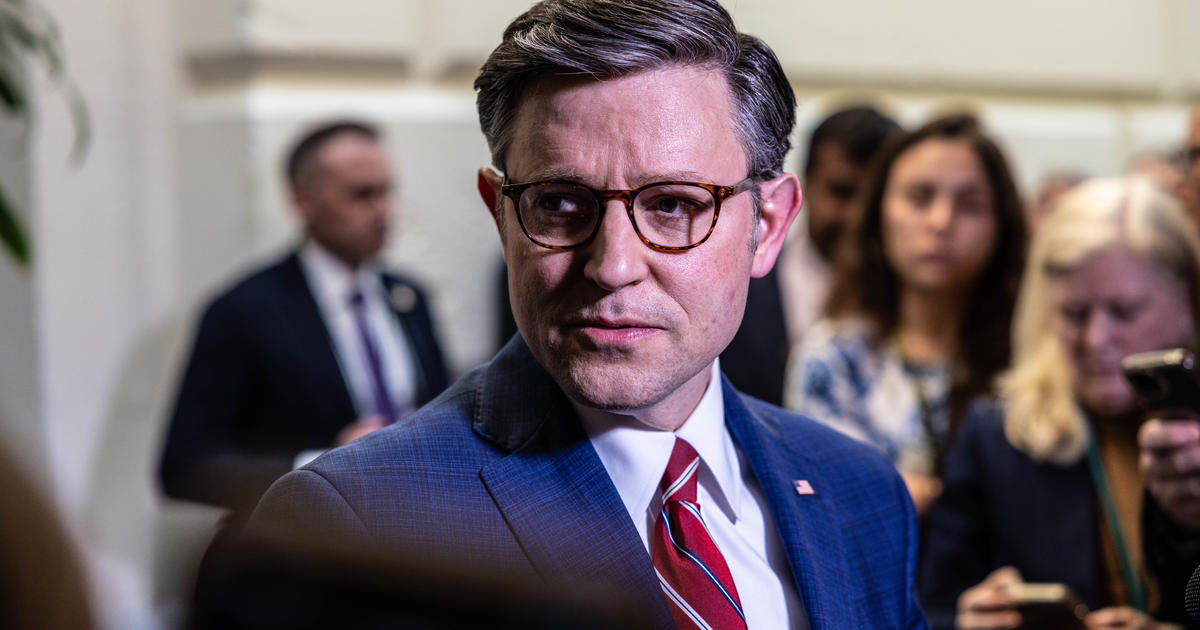New Hampshire primary takeaways: Facts and figures on the candidates and the voters
The candidates have already moved on to the next states to vote in the Democratic presidential primary, but here are some facts and figures and takeaways about the voters and the candidates, from both public data, the CBS News' Elections and Surveys unit.
Secretary of State Bill Gardner has posted official presidential primary returns here.
The vote totals
- Sanders: 76,352 (25.6%)
- Buttigieg: 72,443 (24.2%) -
- Klobuchar: 58,774 (19.7%)
- Warren: 27,427 (9.2%)
- Biden: 24,911 (8.4%)
CBS News' national delegate projections:
- Sanders: 9
- Buttigieg: 9
- Klobuchar: 6
Turnout
Democrats flooded Tuesday night's Democratic primary, with over 298,000 votes counted as of Wednesday night. The number exceeds the 254,780 ballots cast in 2016 and the 288,672 ballots cast in 2008 — the previous Granite State record for Democrats. But a word of caution on characterizing turnout this year as "record-breaking." In New Hampshire, undeclared (independent) voters may cast a ballot in either primary. Given the virtually uncontested Republican primary this year, a greater share of undeclared voters were free to weigh in on the Democratic side.
- January 2008 (Registered Democrats; Registered Undeclared): 258,776; 355,498
- January 2016 (Registered Democrats; Registered Undeclared): 281,208; 360,640
- February 2020 (Registered Democrats; Registered Undeclared): 276,385; 415,871
Independents: According to CBS News exit polls, 43% of participants in this year's New Hampshire presidential primary were undeclared voters. Compare that figure to 40% in 2016.
By geography
Manchester: New Hampshire's largest city – the urban ground zero of New Hampshire's opioid epidemic – voted for Bernie Sanders (30%), who was trailed by Pete Buttigieg (21%) and Amy Klobuchar (17%). Sanders had his strongest performance in Wards 4, 5 and 7, representing Manchester's more diverse, lower-income, inner-city neighborhoods. Manchester's more affluent, northern end backed Buttigieg and Klobuchar in larger numbers.
Joe Biden's fourth place finish in Manchester (9.7%) while greater than his statewide vote share (8.4%) was a blow to his campaign.
Concord: Sanders came out ahead in New Hampshire's capital, populated by establishment Democrats and never-Trumpers. The Vermont senator earned just under 27% of the vote, followed by Buttigieg and Klobuchar (tied at 22%). Klobuchar's second-place finish in Concord is a testament to the large number of state lawmaker endorsements she received in the run-up to the primary.
College Towns: Sanders had a near sweep of college towns – winning by large margins in Keene (Keene State University), Durham (University of New Hampshire) and Plymouth (Plymouth State). Buttigieg, however, won in Hanover (Dartmouth) with 26% of the vote. The Warren campaign deployed sizeable resources to campuses across the state, in addition to Sanders' operation.
Trump-Obama Pivot Cities: Claremont is the quintessential blue-collar, post-industrial Obama-Trump town with abandoned mills lining the Sugar River. This is where the lowest household income rates are statewide, at just over $46,000. While Barack Obama had sizable wins here in 2008 and 2012, Mr. Trump's campaign rocked the city in 2016. Although Buttigieg put sizeable resources into the city, opening up an office downtown, Sanders scored the most votes (33%), with Buttigieg in second (25%).
In 2020, Laconia became a regular stomping ground for Democrats when the heavily Republican city chose a Democratic mayor in 2019. His endorsement went to Klobuchar, but the city went to Buttigieg (25%), followed closely by Sanders (24%) and Klobuchar (21%).
Republican Strongholds: Buttigieg walked away with the majority of purple and red Boston suburbs in New Hampshire's Southern tier. The former South Bend mayor won by healthy margins in Republican Salem, Windham and Londonderry. These upper-class neighborhoods are saturated with the kind of voter that might just switch parties for the right candidate. Bedford, an equally affluent Republican town just south of Manchester, went to Klobuchar by a slim margin. Windham and Bedford represent two of just three towns that chose Hillary Clinton in 2016.
And while ideologically right leaning, Warren's disappointing performance in these communities so close to her native Massachusetts reinforced her disappointing performance.
Why Klobuchar's third-place finish matters
Klobuchar was out-competed in terms of staff and visits here in New Hampshire. The Minnesota Senator had just 30 full-time staff members one week before the primary. Compare that to Senator Bernie Sanders (150+), Mayor Pete Buttigieg (71), Senator Elizabeth Warren (65+), Former Vice President Joe Biden (55) and Andrew Yang (50). She visited New Hampshire fewere times than any other candidate in the month of January – attending just one event in state.
Yet the Minnesota senator earned the endorsement of 3 out of 4 Democratic leaders in the New Hampshire legislature, multiple state senators and mayors across the state. She made frequent visits to nursing homes across the state and was the first candidate to roll out a policy plan for senior citizens, notable in America's fastest aging state.
"If you feel like you need to pick between childcare for your kids and long term care for your parents, I know you," Klobuchar told voters in the final days of her campaign. Nearly two-thirds of voters in New Hampshire are above the age of 45.
Over two-thirds of those ultimately choosing Klobuchar decided in February, underlining the importance of the New Hampshire debate stage for fickle Granite Staters who were still making up their minds.
While it's likely the Senator won votes away from Biden, anecdotally, dozens of voters I spoke with in New Hampshire wanted to elect a female candidate. After Gillibrand and Harris dropped out of the race, voters I spoke with again said it was "either Amy or Liz," and "I'll decide in the ballot box."
The underdog: While Klobuchar's third place finish proved New Hampshire can still be surprising, candidates committing months to campaigning in state – Michael Bennet, Deval Patrick, Tulsi Gabbard and Andrew Yang – failed to break out, with three of them ending their campaigns. While Yang's New Hampshire polling earned him a consistent spot on the DNC debate stage, their relentless retail politicking here did not pay off.
Iowa bump: While New Hampshire voters pride themselves in being "independent thinkers," it is clear Iowa gave Buttigieg a bump. As the South Bend mayor declared victory, he also picked up in the polls, with voters citing his caucus success as proof of his "electability." In other words, if voters ultimately want to pick a winner, they'll likely pick someone who wins.
Towns: 130 of New Hampshire's 238 townships voted for Senator Bernie Sanders. Not a single one chose Biden or Warren.
Exit polls: The key voter groups
Gender: Sanders performed better among men than women. He won the support of men by 31% to 23% over Buttigieg. Women were more divided in their vote with Buttigieg (25%), slightly ahead of Klobuchar (23%) and Sanders (23%). Sanders' support was 8 points lower among women than among men.
Klobuchar did well among white women with a college degree, winning 30% of their support, besting the field. Elizabeth Warren mustered just 14% of this group.
Income: Sanders was the top vote-getter among those with lower-incomes, while Buttigieg did well with those with higher incomes. Sanders got 40% of those earning under $50,000 a year, beating Buttigieg (16%) by double-digits with this group. Biden received 10% support from this group. Among New Hampshire Democrats with incomes of $100,000 or more, Buttigieg (34%) led the field, followed by Klobuchar (21%), and Sanders (18%).
Age: As he did in 2016, Sanders won the support of young voters – those ages 18 to 29. He won 51% of that group – one of his strongest demographic groups. Klobuchar did best among seniors getting 31% of their support, followed by Buttigieg (24%). Sanders came in at a distant third with 15%. Buttigieg's share of the vote was fairly consistent across age groups, but he had a bit more support among older voters.



